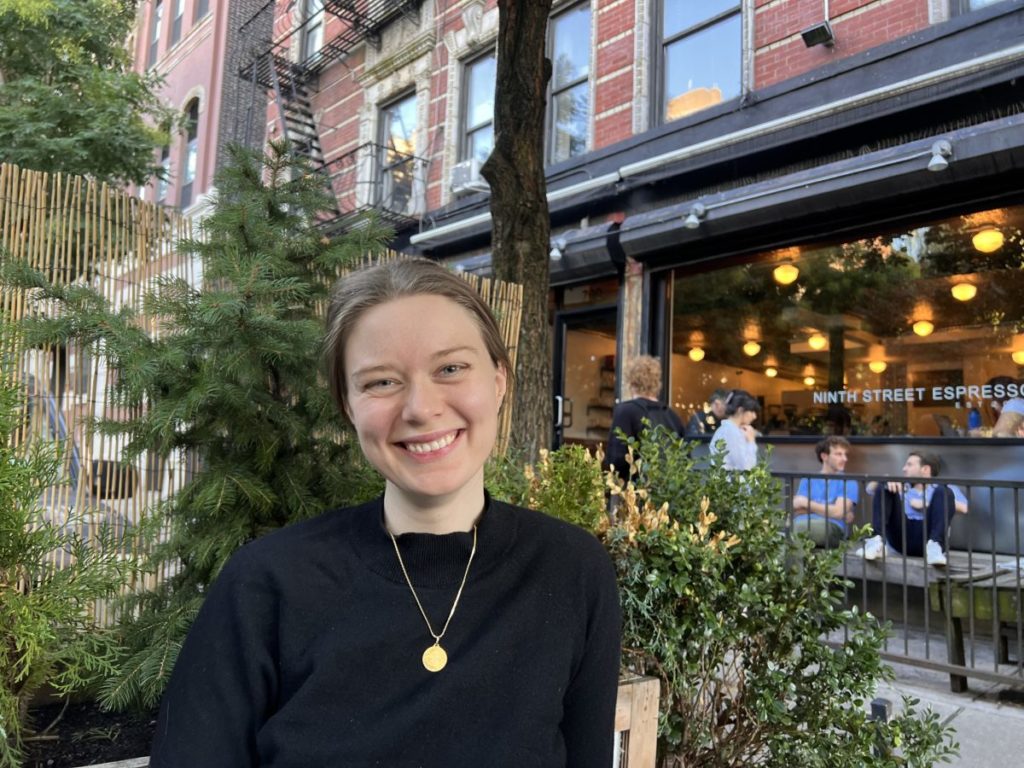
If you looked at Emi Nietfeld sipping tea at a New York City coffee shop with an antique gold necklace around her neck, you wouldn’t know that about 13 years prior, she was a homeless teenager looking to college to save her life.
In her newly released memoir “Acceptance,” the 30-year-old author – who rose to prominence last year penning a harrowing essay of harassment at Google in the New York Times – reveals the obstacles she faced growing up in the Midwest, including her mother’s pathological hoarding, her own time in two different mental-health facilities, and her teenage years either in foster care or on the streets. Nietfeld leaned on education to save her and earned a full-ride to Harvard University – a prime example of “resilience” that is typical of most memoirs.
But there, the “typical” part ends. As noted in positive reviews from both the The New York Times and NPR, Neitfeld’s debut memoir doesn’t put a tidy bow on what outsiders might perceive as a rags-to-riches story. Instead, she goes deeper into darkness, suggesting that a person can overcome adversity but still be left with adversity as a result of any combination of deeply flawed systems or flawed people.
“I hope the people who read ‘Acceptance’ question their beliefs of resilience and grit,” Nietfeld said, in an interview from Ninth Street Espresso in Manhattan’s East Village, not far from where she now lives with her husband, Byron Hood, and where she wrote most of the book.
Nietfeld challenges the idea that people only need self-sufficiency to overcome their obstacles. She is critical of the stories of resilience that we choose to celebrate. “There are all these people around us who are super-resilient, but they didn’t go to Harvard, they didn’t work at Google, and all of their resilience might mean that they’re still in the situation that they’re in,” she said.
Telling stories of resilience doesn’t actually lead to interventions that could help people’s situations in the first place, she continued.
Nietfeld’s own life story doesn’t tie up with a happy ending: she escaped the intense tribulations of her childhood, including self-harm and a suicide attempt, only to be taken advantage of sexually right after high school. Even at Harvard, when she was finally surrounded by students who matched her dedication, her long-distance boyfriend often tried to control her and hold her back.
And when she finally landed her dream job at Google, Nietfeld says she endured harassment from a male colleague and retaliation – all detailed in the New York Times piece – which ultimately caused her to quit, in 2019.
She said she wasn’t listened to or supported by her superiors at Google, bringing back memories of her mother discounting Nietfeld being raped. “I’d thought that if I was just successful enough, I’d never be vulnerable again, and that my skills and accomplishments could ensure my safety. Obviously, that wasn’t true,” she said.
“Walking away [from Google] meant totally rethinking my relationship to work, including letting go of some of my financial anxieties,” she continued. “I’m in a totally different situation now and though it was hard to see that, I’m glad that I’m no longer living in acute fear.”
Nietfeld is now making a career as a writer, saying she plans to keep writing both personal and journalistic essays about mental health topics, more stories from high school that didn’t make it into the book, and even the college admissions process. “Having gone through this experience of having to prove that I faced adversity, my heart goes out to a lot of people who in the future really, really have to prove it, or might have their hardships not be considered because of race,” she said, of her experience with college admissions. Book-wise, she hopes to “write many many more books.”
After tea, Nietfeld headed back to her apartment — and a just-delivered sofa, which she planned to enjoy — and back to a life that features a more realistic version of resilience than most. ◼



